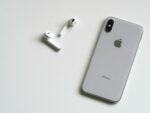We wish Steve Jobs good health and speedy recovery, but for the tech industry, his era is over.
Jobs is arguably the most influential computer-industry executive alive today. While he certainly shares the top shelf with the likes of Oracle’s Larry Ellison, Google’s Larry Page, IBM’s Sam Palmisano and Microsoft’s Steve Ballmer, for years Jobs has been in a class all by himself.
No modern tech titan has been so intimately involved with every aspect of the business. When you look at the patents, the design decisions, the marketing concepts and the purity of execution, Jobs defined what it means to be a hands-on manager with vision.
On Wednesday, Aug. 24, Jobs announced his resignation as CEO of Apple. You’ve undoubtedly read countless stories in the general media, analysis by pundits, and tweets by your friends. At this point, don’t read too much into anyone’s prognostications; we’re all extrapolating from very little data.
For example, we don’t know how many of Apple’s recent decisions were inspired by Jobs, and how many came from Tim Cook. The newly promoted CEO had held down the fort and ran day-to-day operations during Jobs’ illness.
On the short term, Apple has many Jobs-blessed products and plans in the pipeline. But what happens when that pipeline runs dry—and when the industry shifts?
Bigger changes must come soon to Apple’s product and service mix. How much will those changes affect the company’s trend-setting sense of design, ability to create entire new technology sectors, its willingness to go it alone, its minimalistic marketing, its one-sided relationship with partners, its arrogant disdain of the media, its rampant paranoia and secrecy? Nobody knows.
Take design, the area that showcases Steve Jobs’ personal leadership and vision. When it comes to new products (beyond those already in the pipeline), Apple’s designers can either try to emulate the past by designing around a hypothetical WWJD (What Would Jobs Do?) style, or follow the instincts of a new chief designer, even if that means going in a new aesthetic direction.
Let’s hope for the latter; if Apple goes into a WWJD navel-searching spiral, that would be a disaster. You can’t invent the future by copying the past. For the sake of Apple and its customers, Cook must demonstrate strong leadership and truly make the company his own.
Alan Zeichick is editorial director of SD Times. Read his blog at ztrek.blogspot.com.






